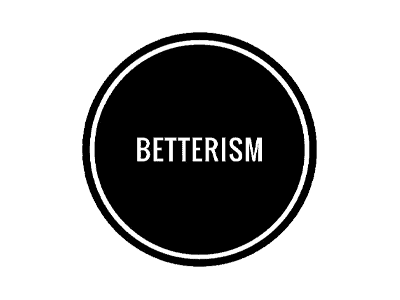Caregiving isn’t just a role; it’s a deep dive into the world of giving and love, a journey that’s taught me how powerful yet challenging it can be. I’m here to share not just the sunny sides but also the gritty realities of caregiving.
Join me as I unravel the perils of too much pride and the necessity of building a supportive team—it really does take a village. Standing back sometimes doesn’t mean stepping away from care but rather preparing for the unexpected. In my own experience, facing the music—acknowledging that I couldn’t do it all alone—wasn’t about giving up but gearing up to ensure both my well-being and that of my loved ones. Listen as I share stories of caregivers who learned the hard way that ‘superhero’ isn’t a sustainable role. Their journeys underscore the importance of community in caregiving and the critical need to keep the dialogue open and honest. If you’re feeling the weight of caregiving solo, let’s talk about ‘sharegiving’—because sharing the load doesn’t just help our loved ones, it saves us too.
About Me:
I have cared for many family members across the life span, experiencing the joys and challenges of child-rearing, the poignance of caring for parents, friends, and elder partners. I realized that I could not handle the stress of family caregiving 24/7/365. It was time for a new approach to caring. My health and happiness were slipping away. This is how Think to Thrive for Caregivers evolved. Let your mind meet your heart so you don’t lose track of your life.
Connect with Me:
https://www.deborahgreenhut.com/
https://www.linkedin.com/in/deborahgreenhut01/
Thanks for listening!
Thanks so much for listening to our podcast! If you enjoyed this episode and think that others could benefit from listening, please share it using the social media buttons on this page.
Do you have some feedback or questions about this episode? Leave a comment in the section below!
Subscribe to the podcast
If you would like to get automatic updates of new podcast episodes, you can subscribe to the podcast on Apple Podcasts or Stitcher. You can also subscribe in your favorite podcast app.
Leave us an Apple Podcasts review
Ratings and reviews from our listeners are extremely valuable to us and greatly appreciated. They help our podcast rank higher on Apple Podcasts, which exposes our show to more awesome listeners like you. If you have a minute, please leave an honest review on Apple Podcasts.
Transcript
Welcome to episode three. Caregivers are a proud group of people, and rightly so, we are motivated by the glow that comes from helping others. We most often take care of people because we love them in the individual sense of being a loved one and in the larger sense of loving humanity. In fact, the popular image of caregivers describes them as selfless individuals, always ready with a cool cloth or a hot meal and missing a serious depiction of the struggle that 24/7 caregiving can entail too much of a good thing can do away with all that pride and cause a kind of bumpy or even disastrous landing in terms of a caregiver's well being. The things we tend to have too much of are pride, love and devotion, the very things that help us be caregivers. I know it feels like a paradox. The qualities that draw us into the commitment can turn on us pride, as in, I can do it all myself, and like the song title, nobody does it better. And there's the love and the devotion we tell ourselves, my loved one doesn't want anyone but me or need anyone but me, and the truth is, though, that round the clock caregiving requires a team of people to sustain everybody properly. We know the drill. It takes a village, and yet we ignore it. Sometimes. We often tease ourselves into the idea that we are indispensable. But that's probably not true anywhere in life. Someone else can always step in if you need to step away. You need to plan for it in the caregiving situation, the fact is that when the ambulance comes for you, the caregiver, someone else will step in because it will be necessary to do so.
Deborah Greenhut:So the question is, why aren't those somebodies stepping up now, when there's no emergency in progress, I found that a caregiving crisis happens just like that. My love of myself went out the window, and the well being seesaw tipped in favor of my loved one, rather than rebalancing our relationship for the sake of both of us, and it was very tough to restore that balance once again when the crisis was passed. The stress of that situation often shuts down our thinking. It may force us to think only about what to do in the emergency, and if we no longer, or have no longer a term plan in place before that, the moment of triage is no time to make that long term plan a crisis cycle begins that prevents us from stepping back to manage the situation, because we're always trying to solve the problem in front of us. When I finally allowed myself to get over my fears about spending money and time to help myself, it was because I realized that the crisis cycle was going to rob me of time and money, the very things I was trying to save, if I did not get some expert advice and guidance about how to manage caregiving so that I wasn't constantly managing the stress that comes from constant emergencies, guarding my time and money, was breaking down my health. I didn't want to look back and realize that I was too selfish to care about myself. It hadn't occurred to me that I might not be around to care for my loved one if I didn't use those resources to take care of me too. So I've worked with many people who were in that same boat that I found myself in before I learned how to do it better. A lot of people are skeptical of taking on advice or taking another person's opinion or guidance. When they are doing the caregiving, they think they have to be superwoman or Superman at it, and there's often a lot of resistance at the beginning of the process. If you as a coach or a helper, try to present yourself as all knowing a good coach or a good mentor will be able to help you think through several what if scenarios so that the plan you make actually fits your situation. Nobody wants a cookie cutter solution to their relationship with a loved one. There's caregiving plan that you need is your creation.
Deborah Greenhut:If I can follow the comparison to cooking for a minute, you get to choose the flavors, the method of cooking, and only you can design the final product, because you may be struggling with feelings of love, though, it can help to consult on the recipe with someone who can help you manage that process so you get the product you desire. You. You are the expert on your loved one's care, but you may seek help on how to make it all happen and to manage it in a way that benefits you and the person you love. Today, I'll describe a couple of scenarios that I've experienced with clients, and I want to share them with you to help you understand what those objections are about I'll share a couple of examples of people I worked with so that you can get an idea for how sharegiving operates in practice, in real life. I remember a great grandmother named Louisa. I changed her name to protect her privacy. Well, Louisa had proudly raised two generations of girls and was helping with the third babysitting her great granddaughter, Ella during her mama's work day. Ella's mama, Jane came to me with Louisa in mind, and Jane was worried about overworking her grandmother, Louisa, who had taken care of her for so long. Jane had so many beautiful memories of spending time with Louisa while her own mother was working, and Jane valued the bond that they were forming with her granddaughter, with Louise's granddaughter, but she feared her grandmother was taking on too much by caring for Ella all day. Louisa was so proud of her contribution to these three generations of her family, from daughter through great grand through her granddaughter. And Jane wanted to honor Louisa, but how much was too much? Jane asked me, How can I help her understand that she needs and deserves help, and the babysitter I hired is there so she can take a rest in the afternoon, I thought about how lovely it was that these people were preserving a multi generational tradition, but I was also concerned, as Jane was, about how hard Louisa would push herself to prove her love because of the many feelings involved, I recommended Starting with a caring conversation. I have found that it's often best to introduce the idea of help slowly and to find out what the caregiver really wants and needs.
Deborah Greenhut:We don't want to scare caregivers into doing more than they should to prove they can. We also don't want to scare them away. Jane found herself in an intergenerational conflict, trying to think of what was best for her own grandma, Louisa. While she needed Louisa to take care of and help her with her daughter, Ella, but she had decided on a solution without talking to Louisa, and that's a critical problem that many caregivers experience. I know from being a grandma myself how quickly those little ones grow up and how precious the bonding time can be. So I never want to give up any time when I can get it and I can see why Louisa was having a bit of a dilemma, and that was passed along to Jane. I also recognize that it's easy to get frustrated and impose solutions on other people when time is short and you don't have a lot of time to discuss things and your other parts of your life are making big demands on you. Jane was trying to manage her working and mothering conflicts, and I've been in Jane's shoes too, so I would include her needs in the plan as well. Now, rational managers will tell you that how you describe a problem is going to affect the solution you come up with. I noticed that Jane was trying to limit Louise's time because she thought that was best for Louise's health. Meanwhile, Louisa was afraid she wouldn't get to see much of Ella if a babysitter took half of her day away. A loving conflict, right? These kinds of control battles are a frequent obstacle to problem solving for caregivers, one person can't see the other's point of view. So a good first step, I told Jane might be a caring conversation, to invite Louisa to describe what she hoped to do with Ella, and then to share her own wishes and concerns. Louisa was going to need reassurance that she wouldn't lose her quality time, connection and support for taking breaks to keep up her well being so she could enjoy the relationship. There might have to be some experiments with time to see what was a good amount to give her some rest, and it was going to take some patience. But the relationship I knew would be better off if they figured out a good system together instead of having an emotional tug of war. Sometimes it's the caregiving itself, the impulse that gets in the way.
Deborah Greenhut:We can see how resistance to taking a break can result from a caregiver's pride and saying, I still got it. I know I want to feel, as a grandma that I can still take care of my grandchildren. But there's a little fear of loss too, in that I fear that I'm losing that time that I want with them, and I'm very desperate to hang on to it. As a coach and a caregiver, I can empathize, empathize with both sides of that story. Here's another example, a woman I'll call Gloria had run a small business with her husband during their very long 50 year marriage, they had found it necessary to close that business due to her husband Bart's stroke, their family business had now become her devoted caregiving for him. So they spent nearly every day and every hour of even of their 50 year marriage together and working previously and now his disability placed them in a similar relationship together, but with Gloria doing most of the work. Gloria was afraid of living her life without her husband, Brad, but she was also feeling tired and stressed by the situation, as Brad's capabilities were limited, her own daily exercise had stopped. They weren't eating right. So her blood sugar was increasing, and her doctor had warned her about allowing her condition to deteriorate any further, even though their adult children had offered to help with dad to give Gloria some relief. On the weekends, Gloria had turned them down underneath her devotion. She was fearful of losing her own role as wife, and even more so, of losing any minutes with Brad. Fear of loss often drives a caregiver to do more, no matter what age they are, you may tell yourself or any potential helpers, if I take a break, I won't have that time. I can't get it back. I suggested that the children try this respite that they were talking about. Instead of giving Gloria some time off or away, they could treat it as family time first, to ease Gloria into the idea of their spending time with their dad and to protect her feeling of devotion while giving her a break. Maybe she needed some care too. Perhaps one of the children could walk with Gloria while the other engaged with dad. Perhaps bit by bit, she would give in, and maybe she'd recognize the benefit to herself of being free of caregiving for for an hour or enjoy a day with some old friends she hadn't seen for a long time. Once she felt secure that she was taking care of Brad by taking care of herself, this self care is also a good investment in Gloria's future, if she fears living alone without Brad, the best thing she can do for herself is learn self care before it's an emergency. Self Care doesn't mean being alone, but it can mean independently, preserving your well being when you don't have someone to lean on. Gloria didn't know she needed that, but her children were trying to look ahead to help her.
Deborah Greenhut:Most of the conflicts that we experience come about because we don't have a problem solving process that takes everyone's interests into account. In some way, this can have tragic consequences by isolating resistant caregivers from the help that they need. I like to talk with clients about how people can change overnight if there's an emergency, but generally it takes time to adjust to the change. They can make, possibly a necessary change in behavior by a snap of the fingers, but the feelings that go along with that often take a longer time to process and may conflict with the new behavior so they may slide back into the old one that wasn't helping them. I emphasize that this is why the share giving patterns that I mentioned are best planned and launched well before there's a caregiving emergency. Sadly, it's often a crisis that compels us to look at how we handle things. If fear has made people dig into their positions, it's difficult to make lasting changes in the way the family handles a crisis. So here are some tips for share giving in families. Number one, promote togetherness before there's an emergency, so that when a sudden change creates a need for caregiving, you have patterns to build on, instead of war zones and not just patterns. Sincere togetherness prevents and preserves your goodwill for the times when your coping skills are going to be challenged. Number two, preserve your flexibility and praise it as a good in the caregivers and loved ones you're trying to help catch other family members being flexible. In other words, as a management consultant, I've always said the things that get rewarded get done. Praise is often a more effective motivator than. Money, and it doesn't cost any money, not to oversimplify things, but honey works better than vinegar, as my Grandma Rose always used to say to me, and that's one of the roots of share giving, like good cooking. Share givers take time, and they know when to add the sugar. It's a good investment in making sure you have a caregiver when you need one.
Deborah Greenhut:If you or someone else you know needs help beyond listening to our podcast to figure out how to start this caregiving journey with good share giving. Please use the contact form in the show notes to connect with me, or please go to my website, www dot Deborah greenhut.com, to fill in the contact form there. We'll schedule a call to figure out the help you need. I would love to hear from you about how you're going to move forward in this change, whether you're thinking ahead or facing the crisis. I thank you for listening to me. Share your comments about share giving with me below. I look forward to listening to you. Have a great week.
















